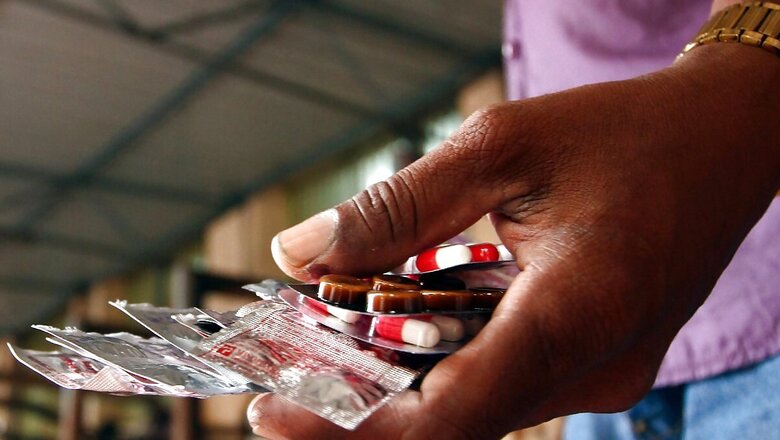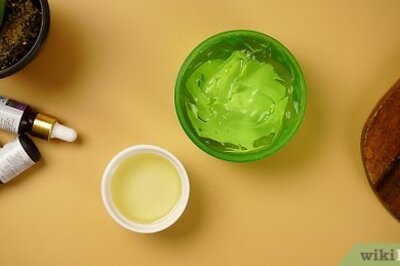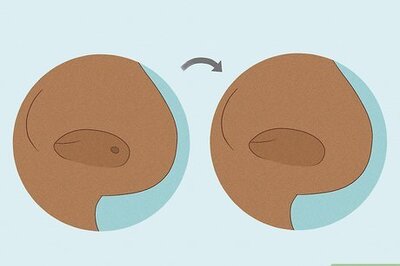
views
At least 60 percent of people want doctors to write the names of a branded drug along with the name of the generic salt or drug in their prescription with only 7 percent approving the guideline that mandates them to mention only the name of the salt.
A survey, conducted by community social media platform LocalCircles, showed that 85 percent citizens support guidelines by the National Medical Commission (NMC) prohibiting doctors from receiving gratification from companies and establishments. This was supported by the fact that 72 percent of people surveyed believe their doctors are receiving commissions from several sources.
On August 2, the NMC recently directed doctors to prescribe generic salts or drugs, and not branded generic drugs. If doctors fail to do so, they will be penalised, including their licence to practise being suspended on repeated violations.
Doctors working at government hospitals, CGHS (central government health scheme) wellness centres, and polyclinics have been repeatedly directed by the ministry of health and family welfare to only prescribe generic drugs and write the names in a legible manner, preferably in capital letters, so that there is no confusion. This is the first time that the NMC in its ‘Regulations Relating to Professional Conduct of Registered Medical Practitioners’ has introduced penal provisions, which was earlier restricted to warnings.
Further, the NMC directive will apply to all medical practitioners and not just to government-employed doctors. “Every RMP (registered medical practitioner) should prescribe drugs using generic names written legibly and prescribe drugs rationally, avoiding unnecessary medications and irrational fixed-dose combination tablets,” the NMC regulation states.
What the survey asked?
The survey sought people’s views on the latest NMC guidelines, especially with regard to restrictions on such malpractices and the use of generic salt names by doctors in prescriptions.
It is not uncommon for doctors to recommend certain laboratories or diagnostic clinics when asking patients to get tested. Many of these labs or clinics may well have tie-ups with the hospital or individual doctors. First, people were asked about their understanding of the “commission nexus”. In response, 72 percent said they believe their doctors are receiving commission income from several sources like labs, nursing homes and hospitals, pharmaceutical companies, chemists among others.
India, which is one of the biggest manufacturers of generic medicines, has many people buying more expensive branded drugs or even generic branded drugs prescribed by doctors even though cheaper and effective options are available in the market.
According to the NMC guidelines, doctors who fail to prescribe the name of the salt and instead prescribe branded drugs can be issued a warning and, in case of repeated violations, their licence can be suspended. A number of people expressed their concerns after reading about this in the media.
The survey asked them what they would, as a patient, want their doctor to prescribe. To this, only 7 percent approved the new regulation that doctors should only provide the name of the salt or generic drug when prescribing medicines, while 60 percent said they wanted their doctors to write the name of the branded drug along with the name of the salt. At least 22 percent said doctors should name the salt and, as an example, mention the name of a branded drug.
With 60 percent in favour of the doctor’s suggestion as well as being told the name of the salt, it may help them choose another option in case the one prescribed is unavailable. Also, many said knowing the name of the salt in addition to the branded medicine will allow them to purchase an affordable generic in case the branded one was expensive.
All in all, there was a strong sentiment that people want to be informed by having both the names – prescribed branded drug and salt – and decide based on recommendation, availability, affordability instead of a doctor or a chemist deciding for them.
The survey also asked respondents about the guideline restricting doctors from receiving any gratification in cash or kind, directly or indirectly from any entity. To this, 85 percent indicated support for the NMC guidelines while 72 percent believe that their doctors are receiving commission from several sources like labs, nursing homes and hospitals, pharmaceutical companies, chemists among others for the use of their products or services.
What do the NMC directions say?
This is yet another attempt to break the so-called nexus of doctors and pharmaceutical companies – a long-standing problem not only in India but globally – that leads to medical malpractices.
The Centre has also directed that any information about a new launch should be communicated to the hospital or doctors only via email as visits by medical representatives to hospitals should be restricted. Though a law prohibiting pharmaceutical companies from giving “freebies” to doctors has been in place since January 1, 2015, it has remained voluntary in effect.
The new NMC regulations categorically bar doctors and their families from receiving any gifts, travel facilities, hospitality, cash or access to recreation from pharma companies or their representatives, commercial healthcare establishments and medical device firms. It also bars doctors from endorsing any drug brand, medicine and equipment or advertising them.
Reacting to the NMC directives, the Indian Medical Association (IMA) has stated that the “measure is just shifting the choice from a medical practitioner who is primarily concerned, trained and responsible for the patients’ health than a chemist/person sitting in a chemist shop, who is selling drugs. This naturally won’t be in the best interest of the patient”.



















Comments
0 comment